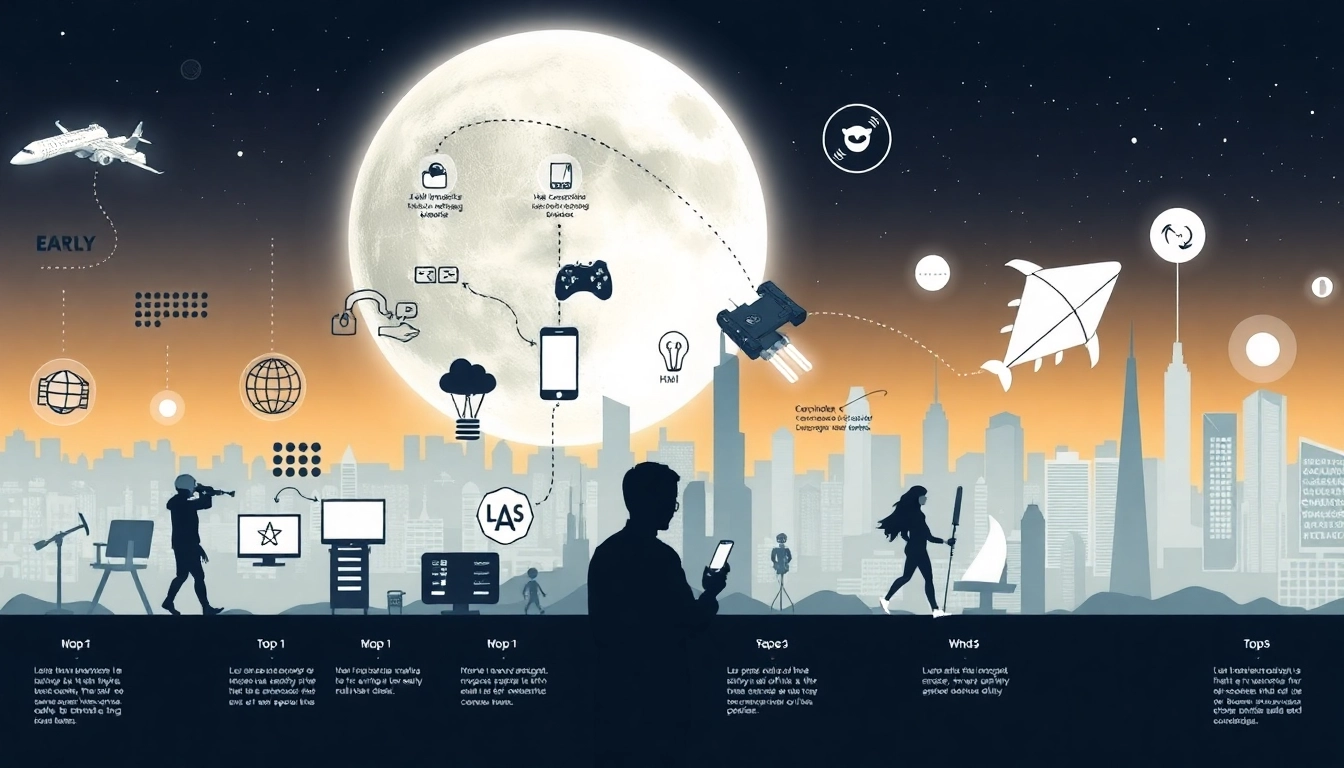In today’s rapidly evolving world, technology has become the backbone of modern society, transforming the way we live, work, and communicate. From smartphones and smart homes to groundbreaking innovations like artificial intelligence and the Internet of Things (IoT), technology is reshaping every aspect of our daily lives. But what exactly is technology, how has it evolved over time, and what are the emerging trends that will define its future? This comprehensive guide aims to answer these questions and provide a thorough understanding of the dynamic landscape of technology.
What Is Technology? Definition, Overview, and Significance
The Evolution of Technology Through the Ages
Technology refers to the application of scientific knowledge to create tools, systems, and devices that solve problems or improve human life. Its history dates back thousands of years, beginning with basic tools like stone knives and fire, progressing through agricultural innovations, and culminating in the digital revolution. Each era of technological development has expanded human capabilities, from the invention of the wheel to the creation of the internet.
Today, technological advancements are more rapid and complex than ever. The shift from mechanical to digital systems has ushered in an era of unprecedented innovation, impacting every sector of society. For example, the Industrial Revolution introduced mechanization, while the Information Age brought computers and connectivity.
How Technology Shapes Society
Technology influences societal structures, economy, culture, and even individual behavior. It drives economic growth by enabling new industries and improving productivity. Socially, it fosters global connectivity, allowing people to communicate across borders instantly. Culturally, it influences entertainment, education, and daily routines. However, it also raises challenges such as privacy concerns, digital divide, and ethical dilemmas.
Understanding the significance of technology helps us appreciate its role in shaping a sustainable and innovative future.
Key Components of Modern Technology
- Hardware: Physical devices like computers, smartphones, sensors, and IoT devices.
- Software: Programs and applications that enable hardware to perform specific functions.
- Networks: Connectivity infrastructure such as the internet, 5G, and satellite systems.
- Data: The information processed and analyzed to inform decisions and automate processes.
Types of Technology: From Basic Tools to Advanced Systems
Information and Communication Technologies (ICT)
ICT encompasses all digital tools used for information processing and communication. This includes computers, smartphones, internet platforms, and communication networks. ICT has revolutionized how we share information, enabling instant messaging, video conferencing, and cloud computing.
Artificial Intelligence and Machine Learning
AI development is a cornerstone of modern innovation. AI systems analyze vast data sets to perform tasks traditionally requiring human intelligence, such as speech recognition, image analysis, and decision-making. Examples include virtual assistants like Siri and Alexa, autonomous vehicles, and predictive analytics in finance.
Biotechnology and Medical Technologies
Advances in biotech, such as CRISPR gene editing and personalized medicine, are transforming healthcare. Medical technologies like wearable health devices and telemedicine improve patient outcomes and accessibility to care.
The Impact of Technology on Various Industries
Technology in Healthcare
Technological innovations have enhanced diagnostics, treatment, and patient management. Examples include robotic surgeries, AI-driven diagnostics, and electronic health records, which streamline healthcare delivery and improve outcomes.
Technology in Business & Finance
Businesses leverage technology for automation, data analytics, and customer engagement. Fintech solutions like digital payments, blockchain, and online banking have disrupted traditional finance models and increased financial inclusion.
Technology in Education and Research
EdTech platforms, online courses, and virtual labs make education more accessible and engaging. Research institutions use supercomputing and data analysis to accelerate discoveries in science and engineering.
Emerging Trends and Future of Technology
Quantum Computing and Its Potential
Quantum computing promises to revolutionize data processing by solving complex problems beyond the reach of classical computers. Its potential applications include drug discovery, cryptography, and solving optimization problems.
The Rise of IoT and Smart Devices
IoT devices—ranging from smart thermostats to industrial sensors—connect everyday objects to the internet, enabling real-time data collection and automation. This trend enhances efficiency and creates smarter environments.
Ethical and Societal Challenges of New Technologies
As technology advances, ethical concerns such as data privacy, AI bias, and cybersecurity risks grow. Ensuring responsible innovation and establishing regulatory frameworks are critical for sustainable development.
Frequently Asked Questions About Technology
1. What is the definition of technology?
Technology is the application of scientific knowledge to develop tools, systems, and devices that solve problems, improve efficiency, and enhance human life.
2. How has technology evolved over time?
From primitive tools to complex digital systems, technology has evolved through major phases like the Agricultural Revolution, Industrial Revolution, and Digital Age, continually expanding human capabilities.
3. What are the main types of modern technology?
Key types include Information and Communication Technologies (ICT), Artificial Intelligence (AI), IoT devices, biotech, and advanced computing systems like quantum computers.
4. What are current trends shaping the future of technology?
Emerging trends include AI development, the rise of IoT, quantum computing, blockchain, and ethical considerations surrounding technological growth.
5. How does technology impact daily life and industries?
Technology enhances convenience, productivity, and connectivity in daily life. Industries benefit from automation, data-driven decision-making, and innovative products and services.
Conclusion: Embracing the Future of Technology
Technology continues to evolve at an unprecedented pace, offering exciting opportunities and challenges alike. Staying informed about emerging tech trends, fostering innovation, and addressing ethical issues are essential for leveraging technology’s full potential. Whether you’re an industry professional, a student, or a curious learner, understanding the fundamentals and future directions of technology empowers you to navigate and contribute to this dynamic landscape.
To explore more about the latest in technology, trends, and innovations, visit TechDee — your go-to source for comprehensive tech insights.









